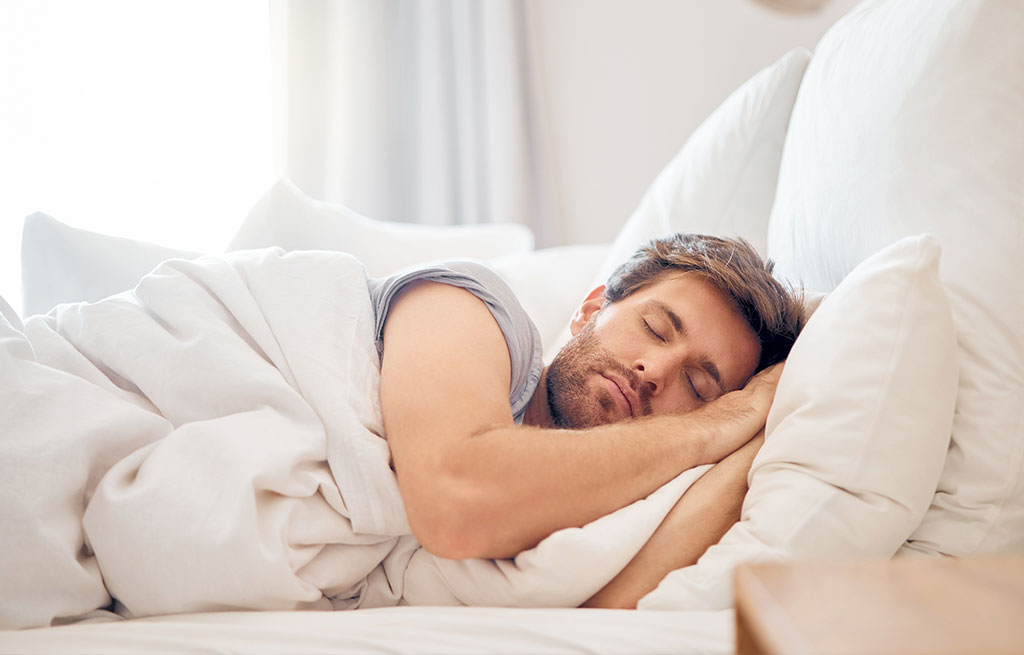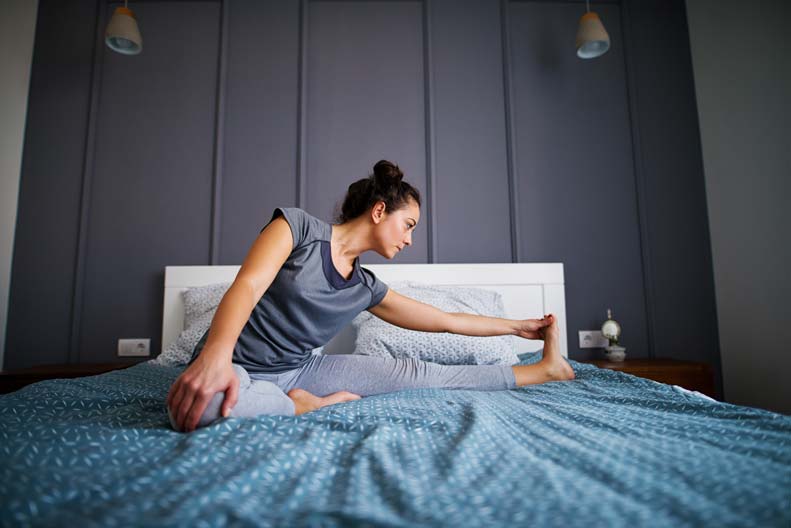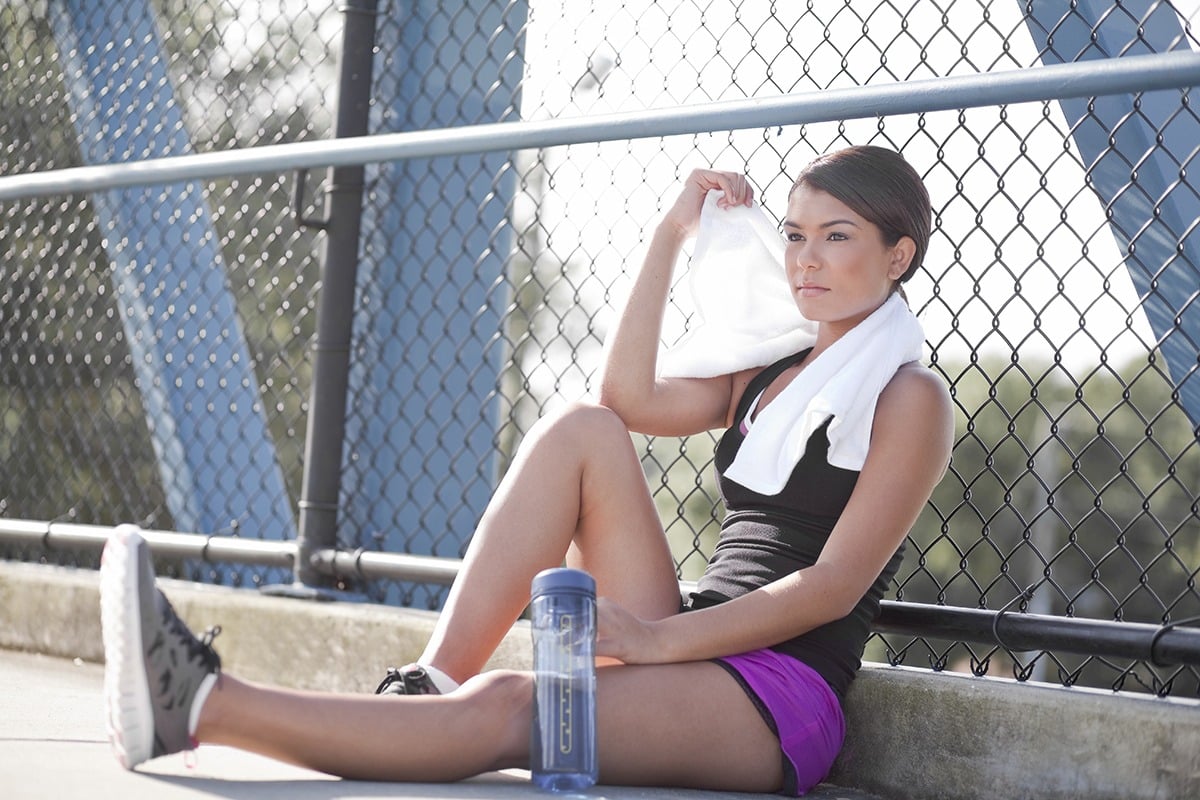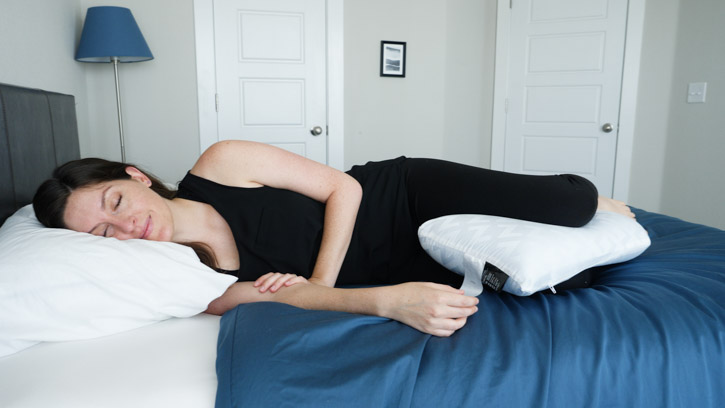Looking for the best way to reduce your risk of athletic injury, and to ensure that your post-workout recovery times are optimized? Well, why not sleep on it? No, really: One of the best ways you can minimize your risk of injury and speed up your muscle recovery times is to get some shut-eye, allowing your body the time it needs to heal and replenish.

Sleep and Muscle Recovery
What Is The Relationship Between Sleep And Muscle Recovery?
There is plenty of research to show that sleep promotes athletic performance, enabling players to put forth a maximum effort and bounce back in time for the next game. This is most pronounced among teenage athletes; for example, one study shows that teen athletes who get less than eight hours of sleep at night are almost twice as likely to be injured as those who get eight hours plus. Another study of collegiate tennis players shows that getting 10 or more hours of sleep each night can improve speed, hitting accuracy, and beyond.
What makes sleep such an important component in athletic recovery? Physical therapist and owner of Next Level Physio, Jerry Yoo, explains that “When we sleep, hormones like HGH and testosterone (in males AND females) are secreted by the pituitary gland to promote muscle recovery. When our sleep is interrupted, especially non-REM sleep, we shunt the optimized benefit from sleep.”
These hormones regulate tissue regeneration within the body. Additionally, sleep decreases the amount of oxygen the body needs to function at a peak level, which is invaluable for athletes who are straining to catch a breath. And, sleep allows the body to digest food with less energy expenditure, which means the body can channel that energy to building proteins and transporting the fatty acids needed for muscle recovery.
One of the ironies here is that sleep is necessary for bolstering athletic performance, and yet an increased training load can also make it more difficult for athletes to sleep. In other words, athletes who try to step up their training regimens may find that they are sleeping less, during a time when their body really requires additional hours of rest. One explanation is that, as athletes try to increase their workloads, their body releases stress hormones to try to cope with the additional strain. These stress hormones can have the side effect of restlessness and insomnia.
What Are Ways To Promote Muscle Recovery Before Bed?
We spoke with multiple experts in the training and exercise field to get their tips for maximizing muscle growth and recovery while we sleep.
Joseph Rayner, a physical therapist at Medicine in Motion, stresses the important of refueling at the end of the day, especially after an injury. He says “For nutrition intake, you will be needing to consume more energy than prior to the injury to meet your body’s energy needs (~1.4x more energy). For example, if it is a muscular injury, higher amounts of protein, fats, and carbohydrates may be necessary, if it’s a bone injury, higher amounts of calcium, vitamin D, and iron may be necessary.”
Strength and conditioning coach James de Lacey adds “Drinking a casein protein shake before bed is a great way to potentially improve muscle protein synthesis while you sleep as casein is a slow-release protein. Another tip that has worked for me is performing a short, relaxing yoga session before bed. The breathing and stretching helps bring you into the parasympathetic nervous system responsible for rest.”
Samantha Watson is a Functional Movement Specialist at Start Rowing who agrees with importance of stretching before bed. She explains “Static stretching before bed is essential for promoting muscle recovery! Overnight your muscle tissues will begin to heal themselves and shorten during the process. By stretching out before bed you allow your muscles to stay loose and long. As an added bonus, this will also help alleviate muscle stiffness when you wake up.”

Sleep And Injury Prevention
How Does Quality Sleep Help Prevent Injuries?
There are a number of ways in which sleep can help prevent athletic injury. For one, the more sleep you get, the more time your body has to secrete those all-important growth hormones, which repair and strengthen your muscles, tendons, and ligaments following a grueling game or training session. In this way, sleep is one of the best safeguards there is for overuse injuries.
Additionally, sleep can have positive mental effects. For example, sleep helps improve response times, which is vital for athletes to adjust on the fly and ensure they are staying out of harm’s way. Improved reaction time is another crucial safeguard against injuries on the court or on the field.
Finally, note that sleep can improve the immune system, making athletes less liable to get sick when exposed to germs or viruses. Fitness trainer Caitlin Sacasas notes that sleep deprivation “can also cause our body to be in a more stressed and inflamed state, also increasing the risk of injury and reducing our muscle recovery potential.”
And for athletes who do catch something, sleep is the best way to make certain the immune system is working hard to promote a speedy recovery.
Why Are Younger Athletes More At Risk?
It’s worth noting that sleep is vital for athletes at any age, but it’s especially crucial for adolescent and college-aged athletes as they seek to minimize their risk of injury. Part of this is simply that student athletes already experience a lot of strain as they seek to balance studying, training, socialization, work, and so on.
There is also scientific research showing that sleep deprivation is linked with injury in adolescent athletes. A big part of this has to do with the fact that adolescent athletes do not yet have fully-developed bodies; more than adults, teen and college-age athletes need those growth hormones to build their muscle and tissue, particularly when their existing tissue is being put through the wringer during games and at practice. Sufficient sleep is imperative for keeping developing bodies strong.

How To Sleep While Recovering From Injuries
Even athletes who do get sufficient sleep may still experience accidents and injuries, including common issues like back pain or stiff necks. When dealing with an injury, sleep becomes even more critical, as it can expedite the body’s healing processes and lead to a quick and complete recovery.
According to Samantha Watson, a Functional Movement Specialist at Start Rowing, “getting a good night’s sleep whilst recovering from an injury can help you maintain muscle mass, or at the very least, reduce the amount of muscle lost during your recovery period“.
Here are a few basic tips on sleeping well while dealing with common sports injuries.
Neck and Shoulder Pain
For athletes who are afflicted with pain or stiffness of the neck and shoulder, the right sleep posture is crucial. Avoid sleeping on the stomach, which can put undue strain on the neck and also potentially lead to a misaligned spine. If you have an injured shoulder, you may want to consider using a pillow to avoid rolling over onto that injured shoulder. Also keep in mind that sleeping on a slightly firmer mattress may help alleviate these sensitive pressure points.
Knee Pain
Knee pain is also common among athletes. One way to guarantee a comfortable night’s rest is to sleep on your side and place a small pillow between the knees; this can help alleviate pressure. Note that you can manage inflammation with either a hot pad or an ice pack as well. Try these remedies just before bed, or even during the night.

Back Pain
What about athletes who are struggling with a bad back? For starters, it’s actually best to sleep on the back. This may seem counterintuitive, but sleeping on the back helps provide an even distribution of body weight, whereas sleeping on the stomach or side may lead to too much weight and pressure on sensitive areas. Also try putting a pillow under the knees to promote healthy spinal alignment.
Concussions
If you believe you have had a concussion, the first step is always to consult with a doctor. After doing this, make sure to avoid any bright or blue light during the night; these may disrupt your circadian rhythms and prevent you from getting rest. Keep the bedroom dark and cool. And if you need extra help falling to sleep, try some meditation or other relaxing activities before climbing into bed (such as a warm bath, soothing music, or curling up with a good book).
Last Word From Mattress Clarity
When you play a sport or spend a lot of time at the gym, injuries can happen. The good news is that there are some simple ways to minimize your risk. First and foremost: Ensure you’re giving your body the rest time that it needs.
Originally Posted: Mattress Clarity